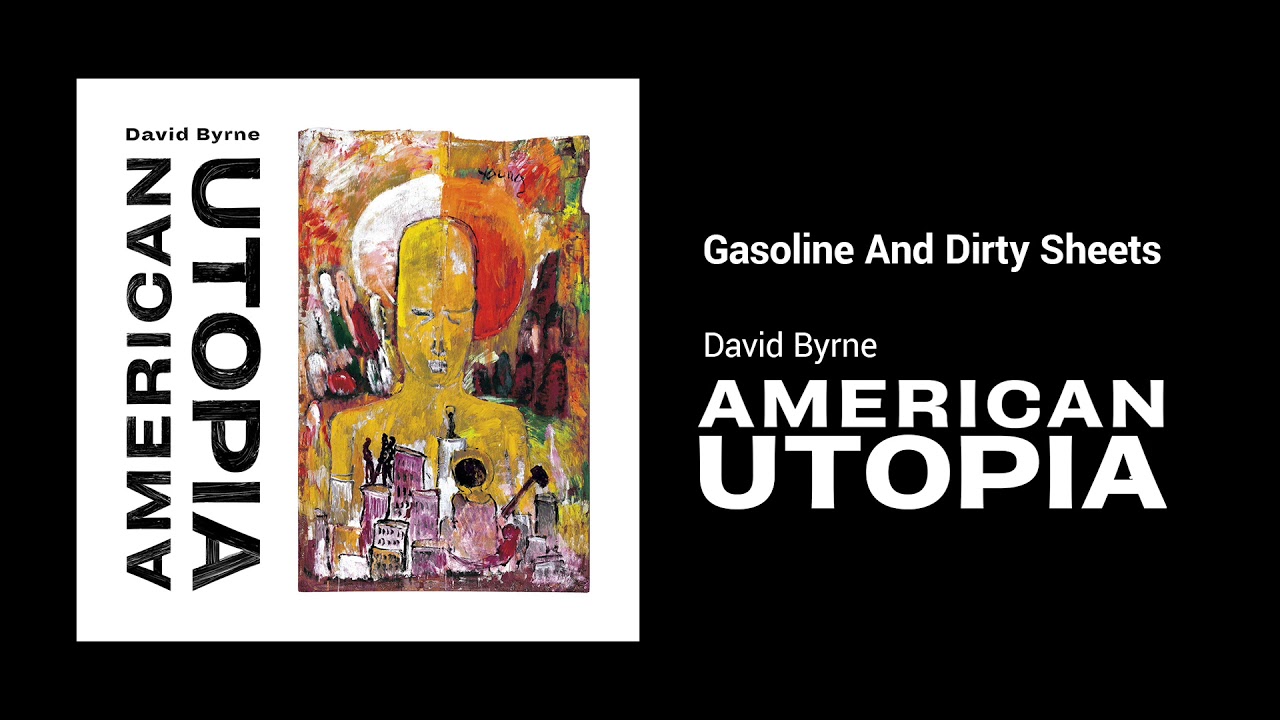David Byrne has always been something of an optimist. On first listen, songs like ‘(Nothing But) Flowers’ and ‘Once In A Lifetime’ might convey a sense of panicked anxiety about the pace of technological progress and the multiplying pressures of modern life. But pay closer attention to his staccato yelps, and Byrne’s overriding worldview quickly reveals itself as one of breathless excitement, not shortness of breath, at the fragmentation brought about by America’s rapid march into the future.
“I’m pointing and describing, and I can be your guide,” he offers here, on lead single ‘Everybody’s Coming To My House’. It’s a promise he lives up to across the album’s ten tracks, repeatedly inviting the listener to notice various kinks and quirks of an increasingly interconnected society. He treats his audience like a tour guide might treat visitors to planet Earth.
‘Gasoline and Dirty Sheets’ sees Byrne using environments familiar to him to discuss America’s divided opinions on liberty, immigration and political tribalism. He uses his house, a recurrent motif, as the battleground on which these wide-ranging disputes take place. But he never lapses into judgement and despair, insisting that the best response is always to behave like a human being and that, despite what any ‘King’ may do, ‘Queen’ America is still both royalty and family.
Similarly cogent is ‘Bullet’, a disturbing parable about the normalisation of gun violence, in which Byrne clinically breaks down the impact of a shooting on a victim’s body as the bullet passes through skin, stomach and heart “like an old grey dog on a fox’s trail.” Each body part recalls its experiences of life: the touches it felt, the food it digested.
At other times, Byrne’s somewhat berserk lyrical approach can obscure the point he tries to make. He returns occasionally to another of his favourite lyrical subjects, animals, and gamely attempts to use non-human viewpoints to highlight the absurdity of our daily concerns. The result is less Daniel Quinn’s Ishmael and more like the kind of thing The Lonely Island might reject for being too silly. After enduring nearly five minutes of material about chicken brains and donkey dicks on ‘Every Day Is A Miracle’ only to have to deal with ‘Dog’s Dream’, you might start to think that Byrne is being generous when he sings "My mind is a soft-boiled potato.” Fried or mashed can seem closer to the mark.
The use of ‘American’ in a project’s title generally suggests some zeitgeist-grabbing intent, and American Utopia largely succeeds in providing a unique observation on one of the greatest periods of upheaval in the nation’s history. Byrne has always had a penchant for social commentary albeit often in either incredibly literal or opaquely abstract forms, so it would have been nice if some of the various collaborators on the album (Sampha, Oneohtrix Point Never, Brian Eno etc) had managed to sit its creator down and reign in some his more excessive (alternatively ‘batshit’) tendencies here and there. Of course this may have actually happened, in which case thank God this album is as cohesive as it is.



